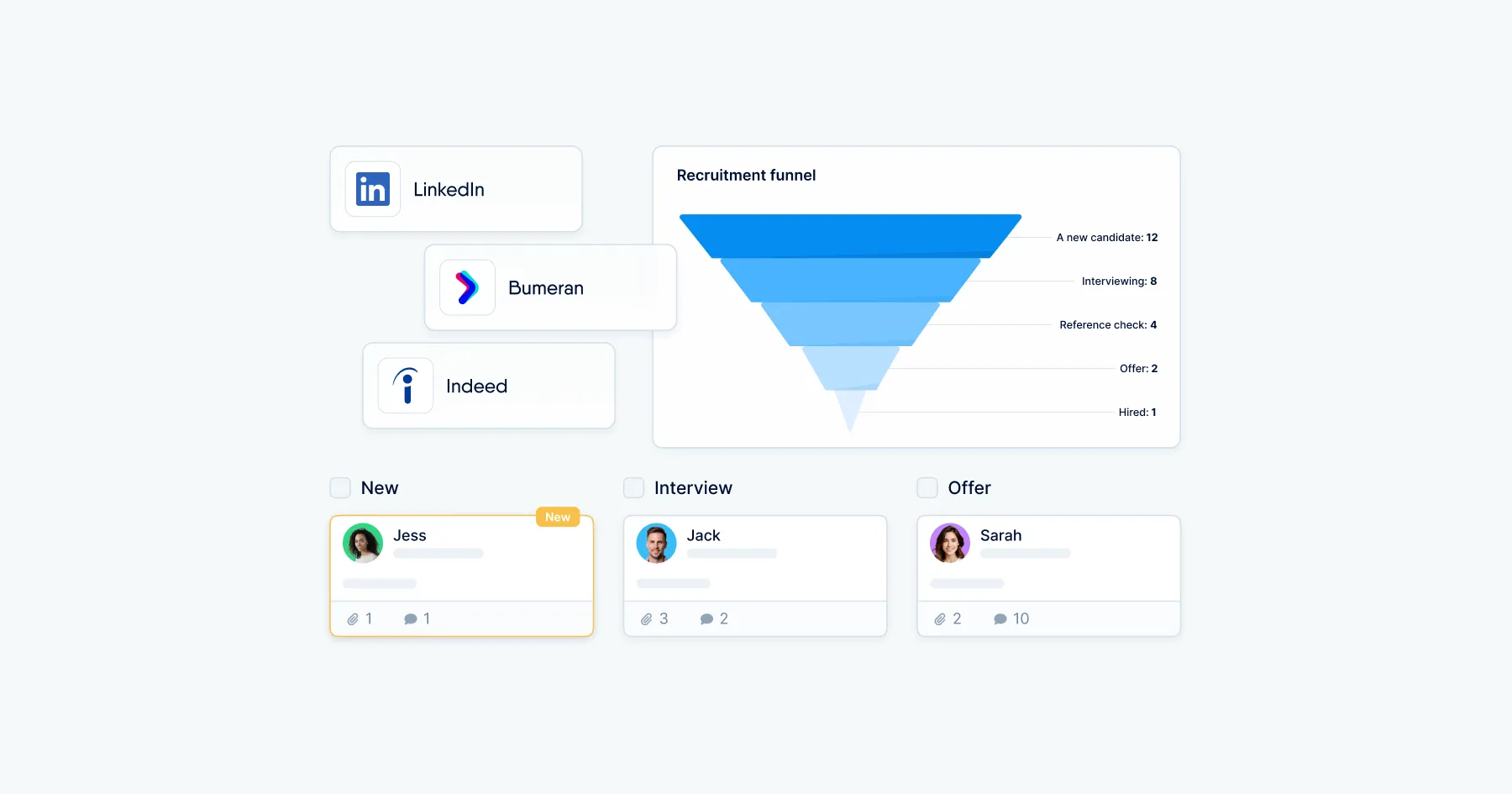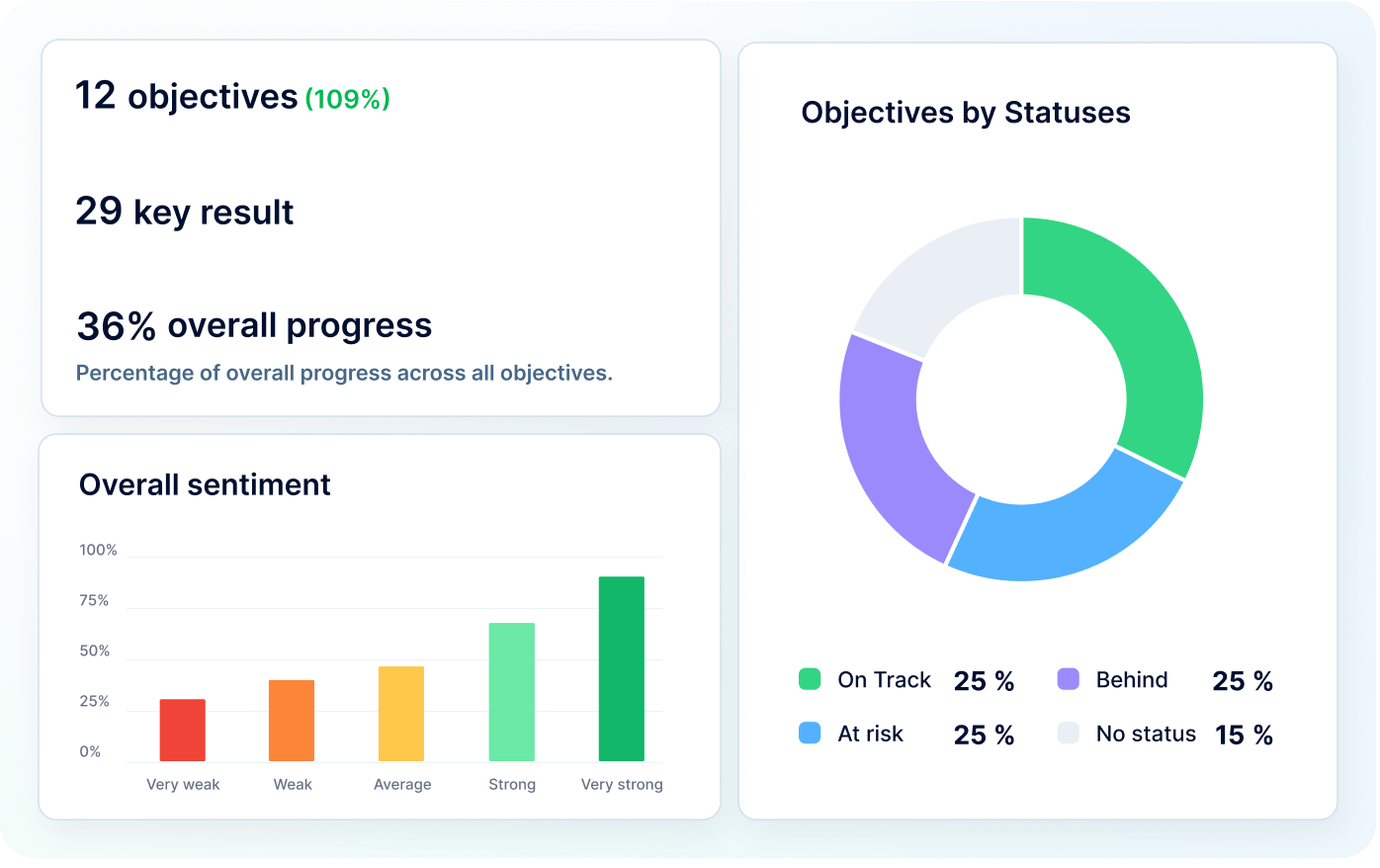
Is your team ready to go global? A practical guide to global hiring
Have you ever stopped to think how many people around the world might be perfect for your open job, but just aren’t in your local talent pool? In today’s fast-moving business environment, relying solely on local hires can limit your company’s growth potential. Global hiring, or global recruitment, is no longer just a trendy option – it’s becoming a necessity for companies that want to compete and scale.
In this article, we’ll explore what global hiring really means, when it’s time to expand internationally, how to prepare for it, and how to make it successful. We’ll also look at challenges like compliance and onboarding, and how HR automation can simplify it all. Ready? Let’s dive in.
What is global hiring, and why does it matter for a growing company?
Global hiring means recruiting talent across countries and regions, often beyond your company’s home base. It can include remote workers from anywhere in the world or relocating employees internationally. The main goal? Access the best skills, reduce time to hire, and build diverse, competitive teams.
Why now? Because the world is changing fast. According to the International Labour Organization (ILO), over 280 million people are working outside their home countries, and this number is expected to continue growing annually. The pandemic accelerated remote work acceptance, breaking down borders for talent pools.
A LinkedIn report highlights that 70% of talent acquisition leaders now see global hiring as essential for business growth. The message is clear: if you want to stay competitive, global recruitment is no longer optional.
Did you know that…
- … remote and hybrid work has boosted global talent pools by 45% in the last two years?
- … companies hiring internationally reduce time-to-hire by an average of 25% thanks to diverse sourcing channels?
- … 60% of global hires cite competitive salary and career growth as key motivators for relocation?
- … 52% of companies face compliance challenges in international hiring, risking fines and delays?
- … global employment solutions providers help companies save up to 30% on administrative costs compared to handling hires independently?
- … over 80% of HR professionals believe that AI and automation will transform global hiring within the next 5 years?
Signs your team has outgrown local hiring
How do you know it’s time to expand your hiring internationally? Here are some common indicators:
- Talent shortage in your local market. When you struggle to find candidates with the necessary skills locally, it’s a clear sign to look further.
- Rapid company growth or new market entry. Expanding your business globally often requires local expertise in new regions.
- Need for diverse perspectives and innovation. Global teams bring varied experiences that spark creativity.
- High competition for local talent drives up costs. Hiring internationally might be more cost-effective.
If any of these sound familiar, global hiring can open new doors for your company.
Relocate employees or hire locals? Which approach fits?
When thinking about global hiring, a common question arises: should you relocate employees abroad or hire local specialists?
Relocating employees makes sense when you need to build a leadership team that shares company culture deeply, or for niche roles where trust and alignment are critical. But relocation is costly and complex – visas, housing, family considerations, and legal requirements all add layers.
On the other hand, hiring local talent is often more efficient for roles that require local market knowledge, language skills, and an understanding of regulations. It can save time and money and help you integrate quickly into new regions.
Many companies use a hybrid approach – relocate key personnel while hiring locally for supporting roles.
Preparing your company for global hiring: what to have in place
Going global isn’t as simple as posting job ads worldwide. Preparation is key:
1. Build a strong employer brand internationally
Your employer brand must resonate across cultures. Localize your career page with translations and culturally relevant content. Showcase your company values and benefits clearly. Global candidates want to feel connected even before the first interview.
2. Establish legal entities or partner with providers
Understanding local employment laws, tax rules, and payroll is critical. Setting up a legal entity in each country can be costly and slow. Alternatively, partnering with Employer of Record (EOR) services allows you to hire legally without registering a company there. Choose what fits your growth plans.
3. Train your recruitment team or find global recruitment agencies
Recruiters need training on cultural differences, communication styles, and legal constraints of global hiring. You can also outsource part of the process to specialized global recruitment agencies who know the local markets well.
How to hire globally? Practical tips and hacks
Global recruitment brings new challenges, but also opportunities. Here’s what works best:
- Leverage niche job boards and local platforms. Don’t rely only on global giants like LinkedIn; explore regional sites and communities.
- Use referrals and your international network. Personal connections often lead to better hires.
- Be culturally sensitive in interviews. Understand local norms about punctuality, communication, and formality.
- Offer flexible working arrangements. Remote or hybrid options attract top talent worldwide.
- Communicate clearly about time zones and expectations. Make sure everyone’s on the same page from day one.
Top platforms for global hiring
If you’re planning to expand your recruitment internationally, here’s a list of trusted websites and services where you can find talent worldwide:
- LinkedIn – the largest professional network in the world, with over 1 billion users. Perfect for finding specialists across various levels and industries, great for networking and recruiting. (Global, especially strong in North America, Europe, and Asia)
- Indeed Worldwide – a global job and resume site operating in more than 60 countries. Easy to use and allows posting jobs locally. (Global, popular in North America, Europe, Latin America, and parts of Asia)
- Upwork – a platform for freelancers and remote specialists in IT, marketing, design, writing, and more. Ideal for project-based hiring. (Global, with high usage in North America, Europe, and South Asia)
- Glassdoor – besides company reviews, it hosts job listings in multiple countries and helps analyze the job market. (Primarily North America and Europe)
- AngelList – a popular platform for startups to find talent eager to work on innovative projects, often remotely. (Strong in North America, growing in Europe and India)
- Remote.com – specializes in hiring remote workers worldwide, focusing on legal support and payroll services. (Global, popular in North America, Europe, and Australia)
- We Work Remotely – one of the largest websites exclusively for remote jobs. Great for tech and creative roles. (Global, especially North America and Europe)
- Toptal – a platform for hiring top-tier freelancers in IT, design, and finance. All candidates go through a strict screening process. (Global, with clients mostly in North America and Europe)
- Jobsora – a job aggregator covering many countries, allowing international job postings. (Global, with a focus on Europe, Asia, and Latin America)
- EuropeLanguageJobs – a platform for finding specialists fluent in various European languages, useful for localized hiring. (Europe-focused)
How to onboard international employees?
Effective onboarding for global hires requires planning:
- Provide localized onboarding materials in the employee’s language.
- Schedule virtual meet-and-greets and company culture sessions.
- Assign mentors or “buddies” who understand the local context.
- Be patient and open to feedback as new hires adjust to remote or hybrid work.
Good onboarding sets the stage for long-term retention and productivity.
Why is compliance critical to avoid legal risks in global hiring?
Employing people across borders means navigating complex legal landscapes:
- Local labor laws vary widely – contracts, working hours, and benefits.
- Tax obligations differ per country.
- Data protection regulations like GDPR in Europe must be respected.
- Immigration and work permit requirements are critical when relocating employees.
Ignoring compliance risks, fines, lawsuits, and reputational damage. Use local legal experts or trusted EOR providers to stay safe.
Can HR automation help with global hiring?
Yes! Managing contracts, payroll, taxes, and employee data across countries can become chaotic. HR automation platforms designed for global employment offer:
- Centralized employee data management.
- Automated compliance monitoring.
- Streamlined onboarding workflows.
- Integrated payroll and benefits management.
Automation reduces errors, saves time, and frees HR teams to focus on strategic tasks.
Why is global hiring a trend that will shape HR future?
As companies grow and compete internationally, global hiring is becoming the standard. Remote work acceptance, digital communication tools, and international talent pools create unprecedented opportunities. Companies that embrace global hiring can build stronger, more diverse, and innovative teams, positioning themselves for long-term success.
If you’re scaling or entering new markets, don’t wait. Prepare your brand, legal infrastructure, recruitment processes, and onboarding for global talent now. The world is your talent pool – and it’s waiting.
With over five years in HR tech content creation, Maria explores how technology, people, and culture shape the workplace of today. Her interests include HR, AI, IT, and personal development, and she brings a data-driven, human-centered perspective to her writing.
Get started with PeopleForce today
Automate your HR routine to create a high performance culture in your company. PeopleForce is your best HRM alternative to stay business driven but people focused.

Recent articles
10 prompts to turn ChatGPT into your ultimate HR and recruiting assistant
With tools like ChatGPT, you can delegate routine tasks – let's see how you can do it easily.
PeopleForce launches job multiposting across 3000+ platforms, powered by VONQ integration
PeopleForce, a leading HR platform, has partnered with VONQ to enable job multiposting on over 3,000 platforms worldwide, enhancing the recruitment experience for users.
10 essential HR solutions for common startup challenges
Discover the top 10 HR challenges startups face and practical solutions to overcome them so your startup can thrive and grow efficiently.

